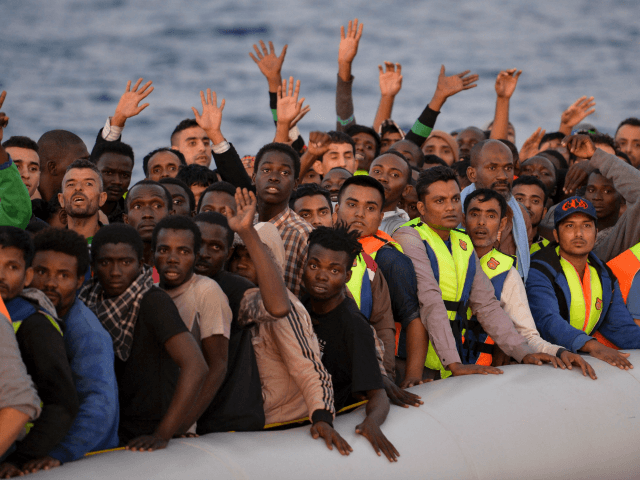German newspaper Die Welt has admitted that most of the migrants coming in boats across the Mediterranean are not genuine refugees and are unlikely to gain asylum status.
The paper’s political editor Marcel Leubecher made the admission in an editorial article for the paper this week, noting the rise of migrants crossing into Europe both into Italy across the Mediterranean and across the Aegean sea into Greece.
“Contrary to popular belief, the majority of those arriving in Italy are not refugees. The main countries of origin for boat migrants in January were Algeria, Ivory Coast, and Bangladesh,” Leubecher wrote.
He went on to note that 95 per cent of the asylum applications from the aforementioned countries were rejected and that Libyans made up hardly any of the asylum seekers who arrived in Europe despite their country being in the middle of civil conflict.
According to Italian Interior Ministry data, while the highest number of migrants set out to Italy from Libya, Tunisia, Algeria, and even Turkey saw large numbers of migrants set sail for Italy from their shores as well.
While many of the migrants coming into Europe are unable to claim asylum or refugee status, a high number remain in Europe, despite orders to deport them.
In 2018, the German Federal Office for Migration and Refugees (BAMF) admitted that only a small fraction of failed African asylum seekers have actually been deported from the country and most have a high possibility of never being deported at all.
Even when migrants have been deported, many of them simply return to Europe. A total of 28,283 migrants are known to have returned to Germany since 2012 after being deported, 5,000 of which have done so on multiple occasions.
Other countries like the UK have not fared better when it comes to deporting illegal failed asylum seekers. According to a report released last month, just 15 per cent of migrants coming into Britain illegally are actually sent back to their country of origin.

COMMENTS
Please let us know if you're having issues with commenting.